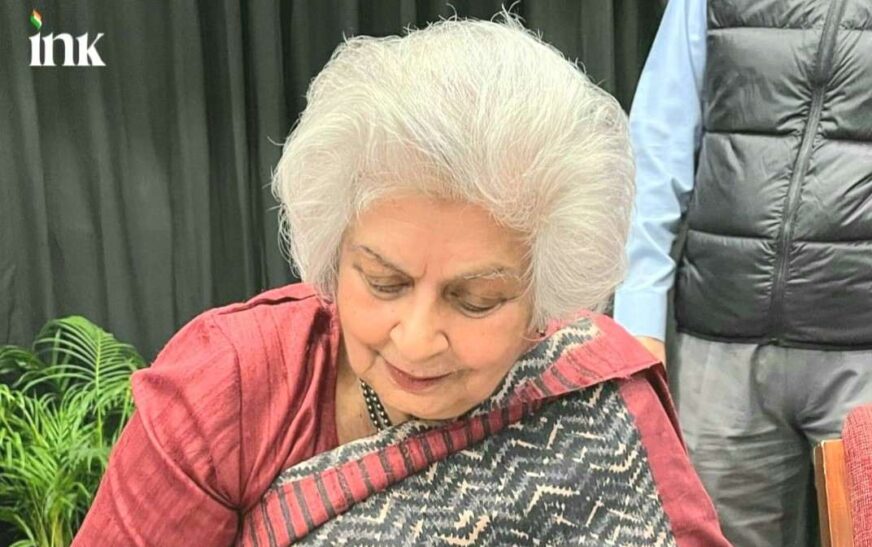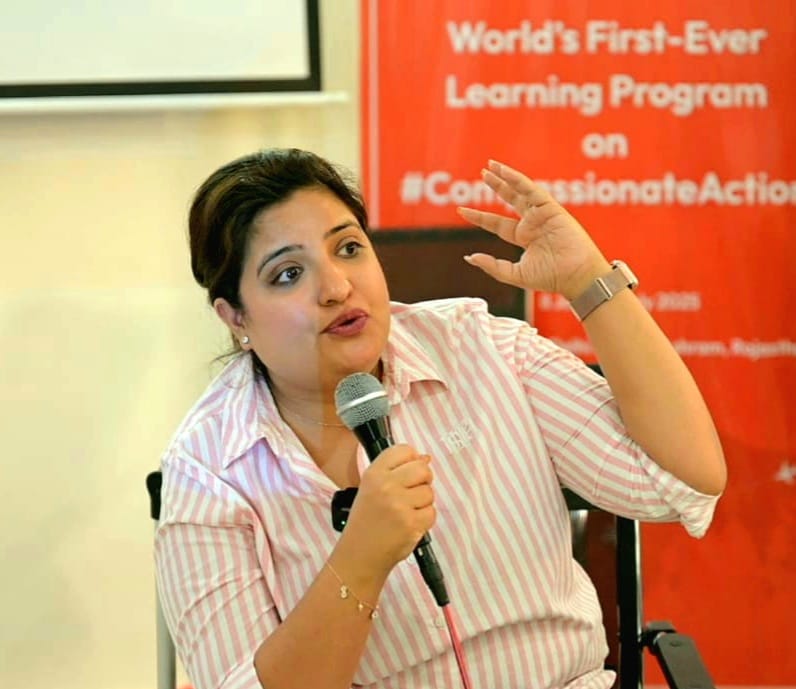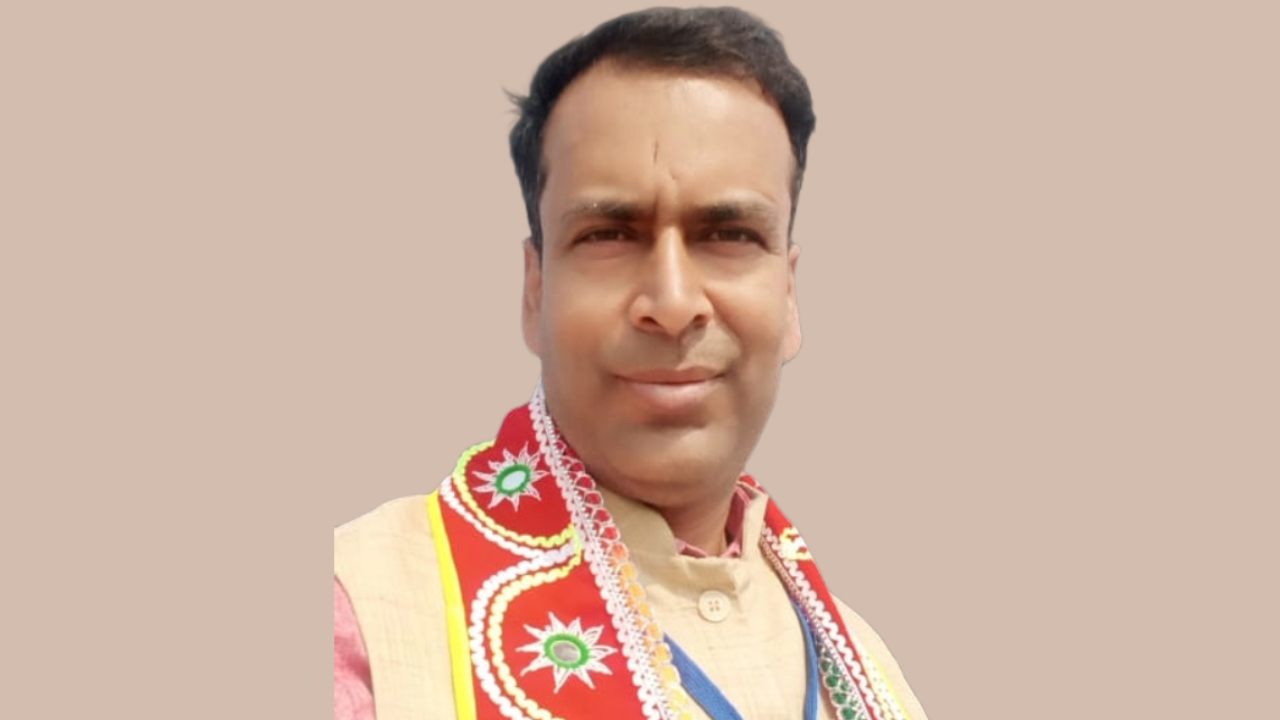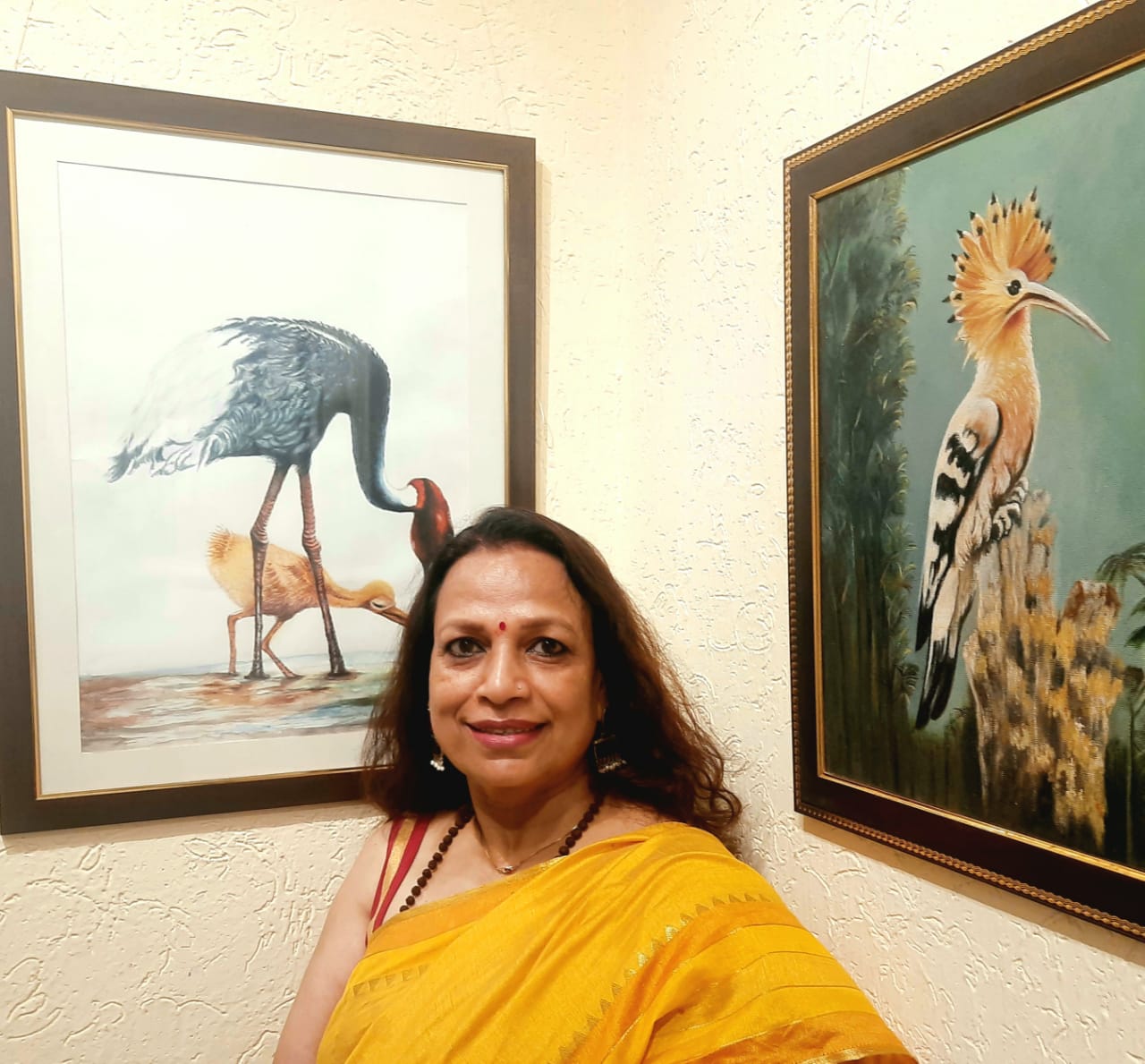Rami Chhabra steps into the realm of fiction with Becoming the Storm, a work published by BluOne Ink, yet she is already a formidable presence in the media landscape, with decades of influence in print and television. Her life’s trajectory is an embodiment of relentless dedication to advancing the cause of women and social development, manifesting in her many roles across media, public advocacy, administration, international consultancy, and volunteerism. Notably, since 1975, she has been the visionary founder-president of Streebal, a non-profit committed to championing women’s issues and fostering community upliftment.
In Becoming the Storm, Rami masterfully examines the dichotomy between a woman’s ambition and the stifling constraints of tradition. The novel charts the journey of sixteen-year-old Indu, who dares to dream of studying abroad and forging a career of independence, yet is ensnared by the relentless pressures of her mother, who insists upon securing a suitable marriage. Her father, burdened by his own external tribulations, remains indifferent to the internal conflagration consuming his daughter. Into this volatile landscape steps Ashok Madan, a suave and captivating young man who sweeps Indu off her feet.
What follows is a whirlwind romance, heady with promises of love and shared dreams. However, as the relationship progresses, Ashok undergoes a startling transformation—his fervent courtship gives way to an unwavering devotion to his mother, relegating Indu to the periphery of his affections and leaving her to grapple with the stifling weight of tradition within the confines of her new home.
As Indu strives to reconcile her personal aspirations with the oppressive demands of her in-laws, her path unfolds against the backdrop of post-independence India, a nation in the throes of profound societal upheaval. This charged historical moment serves as the stage upon which her inner conflict plays out, as she faces the stark choice between conforming to familial expectations or asserting her autonomy.
Will Indu break free from the shackles of tradition and claim the life she has long envisioned, or will she be crushed by the suffocating weight of inherited obligations? Becoming the Storm is a stirring testament to the indomitable resilience and tenacity of a young woman determined to carve a path through a world that seeks to confine her.
In an exclusive conversation with The Interview World, the astute Rami Chhabra sheds light on the genesis of her debut novel. She offers a detailed exploration of the key attributes of the protagonist, dissects the complexities of portraying the intricate relationships between Indu and her in-laws, and underscores the profound messages she aims to impart to her readers. Below are the illuminating takeaways from this insightful dialogue.
Q: What inspired you to write Becoming the Storm and how much of Indu’s story is drawn from your own experiences or observations?
A: The desire to pen a novel has long been a constant companion. In the closing pages of my memoir, Breaking Ground: Journey Into the Media…and Out (National Book Trust, 2012), I concluded with a wistful hope: ‘to build that tiny home in the hills I had always dreamed of…to write some fiction, retreat from a world that has grown stranger than fiction itself.’ Yet, it took years for that aspiration to take shape.
I did, indeed, build that hilltop retreat and even made a tentative foray into fiction shortly thereafter. However, life’s vicissitudes soon overwhelmed me. My husband, already grappling with serious health challenges, suffered a series of strokes and passed away in 2017, just a few months before our diamond wedding anniversary. It was only during the global lockdown, when the world itself seemed to be undergoing a profound transformation, that I was finally able to return to my long-cherished ambition of writing fiction.
As the pandemic reshaped the world, I found myself overwhelmed by a deep nostalgia for the city and way of life I had known in my youth. Though scarred by the trauma of Partition, those years were imbued with the warmth of Punjabi camaraderie—a time now slipping into the realms of memory, with few left to recall it.
This nostalgia, tinged with both sorrow and fondness, became a driving force, compelling me to record that era. In the process of writing the novel, I drew on personal recollections, but Indu’s story is more than a mere reflection of my own past—it is a tapestry woven from the lives of thousands of women I have encountered in my years of media work and activism in the women’s movement.
In the late seventies, the Dahej Virodhi Chetna Manch—a critical platform where eight prominent national women’s organizations, including Streebal, joined forces—was instrumental in pushing for stronger amendments to the anti-dowry legislation. The issues of early marriage, dowry demands, and domestic violence—deeply regressive social mores interwoven throughout Becoming the Storm—remain pervasive blights on our society. These are issues I have confronted repeatedly in countless articles, television series, and academic reports.
Now, through this novel, I hope to reignite a meaningful discourse on these issues. The problems have not only persisted but have grown more acute, while societal attention has diminished. This, I believe, is the urgent context in which my story unfolds—a reflection of a world that seems to be losing its grasp on the very values it once held dear.

Q: The journey of Indu reflects a constant struggle between tradition and modernity. How do you think this conflict has evolved in contemporary society, and what lessons can readers take from it?
A: The perennial conflict between tradition and modernity is a theme that transcends generations, and it is vividly encapsulated in this multi-generational saga. Each generation contends with this tension, and it spans across all genders. Yet, today, our nation finds itself at the heart of a profound intensification of this very conflict. Society is becoming increasingly polarized, with opposing factions asserting their worldviews with unprecedented ferocity, their voices amplified by a media reach unparalleled in history.
The resolution, however, does not lie in choosing between tradition or modernity; rather, it resides in the delicate art of synthesizing the best of both, forging a synthesis that transcends their individual limitations. Polarization, in contrast, merely magnifies the flaws of each. I trust that readers will glean this message from the narrative—not as a didactic lesson, but as a reflection on the potential for balance amidst discord.
Q: The protagonists character embodies resilience and determination. What qualities do you aim to highlight in her as a role model for readers?
A: What I seek to portray through Indu’s character is her resolute devotion to justice and fairness. Her struggle for personal dignity and equality transcends a mere vociferous demand for women’s rights; it is imbued with an equally profound recognition of the duties and responsibilities that accompany them. Indu embodies compassion, ever sensitive to the plight of others, while pursuing a life characterized by reciprocity, mutual respect, and a balanced give-and-take. Yet, despite this, her unyielding resolve to carve out an independent and self-sustaining existence remains unshakable.
Q: Family dynamics play a central role in the book, especially the relationships between Indu and her parents and in-laws. What challenges did you face in portraying these nuanced relationships?
A: This is a tale that resonates in every household – the burdens of giving and subservience imposed upon the girl’s family, juxtaposed with the insufferable air of superiority exuded by the boy’s. In the case of Indu and Ashok, this stereotype is starkly rendered, yet its contours are sharpened when we examine the contrasting attitudes of the two families toward the marriages of their other children. Rano’s treatment of the unpretentious Paro, Surinder’s bride, and Maji’s condescending approach to the affluent Shama, her younger daughter-in-law, illuminate the intricacies of these relationships. I trust that these disparities will underscore the subtle, often overlooked, nuances at play.
Q: How did you approach crafting Ashok Madan’s character, particularly his transition from passionate suitor to a traditionalist? Was his arc inspired by societal norms or individual personality traits?
A: Some readers have lamented that Ashok’s character lacks depth. Yet, Becoming the Storm is fundamentally the story of a young girl’s perspective—an outlook all too rarely afforded genuine consideration. The novel brings to the fore her inner turmoil, underscoring how early marriage often imposes upon young women burdens they are woefully ill-equipped to bear. Ashok, in essence, is the archetype of the quintessential Indian male—a pampered Mama’s boy, a relic of past generations that, regrettably, endures in vast numbers today. This issue lies at the core of much marital discord in Indian society, as such upbringing cultivates selfishness, self-absorption, and a profound neglect of the responsibilities that come with a life partnership.
Q: The novel explores themes of love, sacrifice and self-discovery. Which of these themes resonated most with you as you wrote the story and why?
A: The narrative, in a sense, began to write itself. At the outset, I had conceived a vastly different, even more theatrical conclusion, one that would unfold further into the future. Yet, as the story progressed, it steadfastly refused to follow that trajectory. Perhaps it was because so much had already been inscribed that such an ending became untenable. Ultimately, Becoming the Storm culminates in a cliffhanger—an ending that could well pave the way for a sequel, contingent, of course, on the reception this book garners.
Q: What message do you hope Becoming the Storm conveys to readers about breaking free from societal constraints and following one’s dreams?
A: The message of Becoming the Storm is profoundly affirmative. It asserts that life’s adversities, far from being insurmountable, must be confronted and conquered. To endure hardship is to endure a crucible that tests the very mettle of the human spirit, yet in this very fire lies the potential to enhance human agency. Personal trials, rather than merely obstacles, become instruments of profound growth and empowerment. It is through this transformative lens, not through the futile pursuit of revenge or retribution, that one transcends adversity and effectuates a radical transformation of life itself.
Q: As a veteran media personality and debut novelist what challenges did you face in bringing Becoming the Storm to life and how has the journey of writing and publishing this book influenced you personally and professionally?
A: As I mentioned earlier, I penned Becoming the Storm—which bore a different title at the time—during the Covid lockdowns. The act of writing consumed me entirely, so much so that the otherwise harrowing period passed in the blink of an eye. Once normalcy returned, I sent the book’s synopsis to several leading international publishers, only to receive polite yet dismissive replies: “We are currently overwhelmed by a large backlog of commitments,” and “We wish you success with your intriguing manuscript.”
Some writer friends, ever the optimists, assured me that, as a debut novelist, I was fortunate even to have received such courteous notes. Yet, I would be remiss if I did not admit that the indifference struck a blow to my ego, compelling me to set the manuscript aside—until this summer, when an entirely serendipitous encounter led me to BluOne Ink. Within mere months, they brought the book to fruition with a grace and efficiency that I had scarcely dared hope for.
Although I have authored several non-fictions and children’s stories, the experience of publishing my first novel has been a singular thrill. Working alongside the editorial team to rethink its title and craft the cover was a process of discovery and reinvention. The discovery of a Tagore painting that perfectly encapsulates the essence of the title, bestowing upon the book an air of elegance, was a moment of rare delight. I trust that readers will find the content as engaging as its exterior promises. The extraordinary reception at the book’s launch earlier this month at the India International Centre has reinvigorated me, refuelling my resolve to continue advocating for the issues to which I have dedicated decades of my life.









